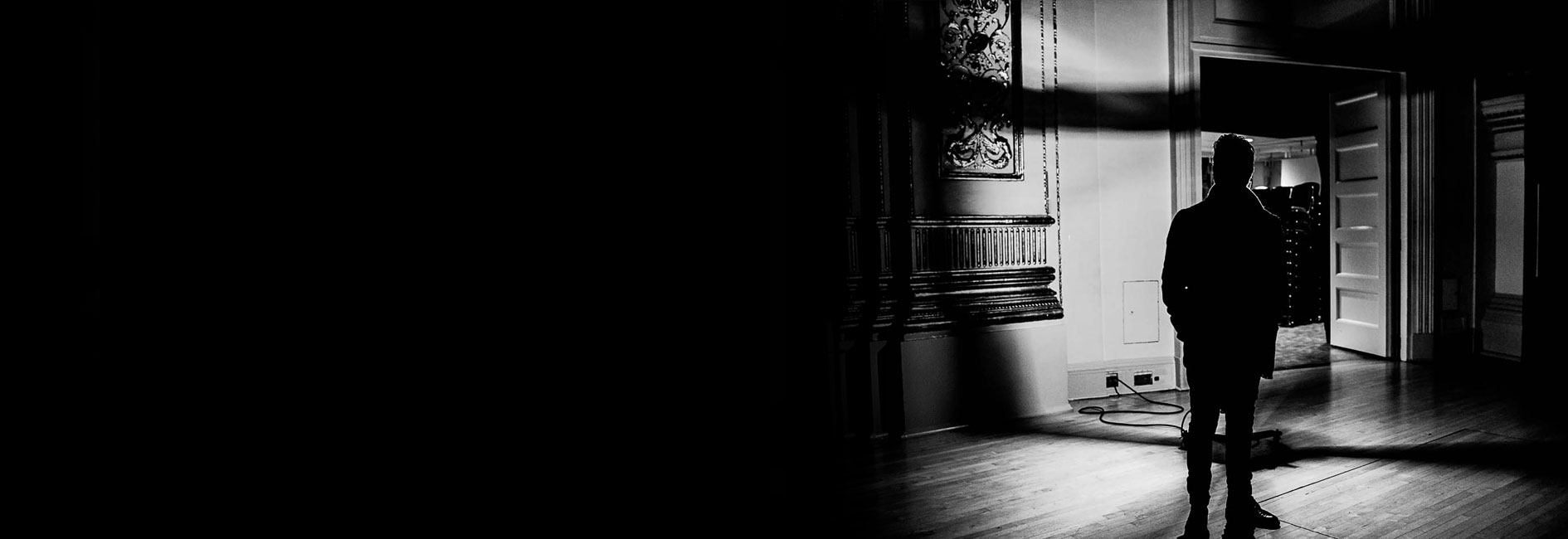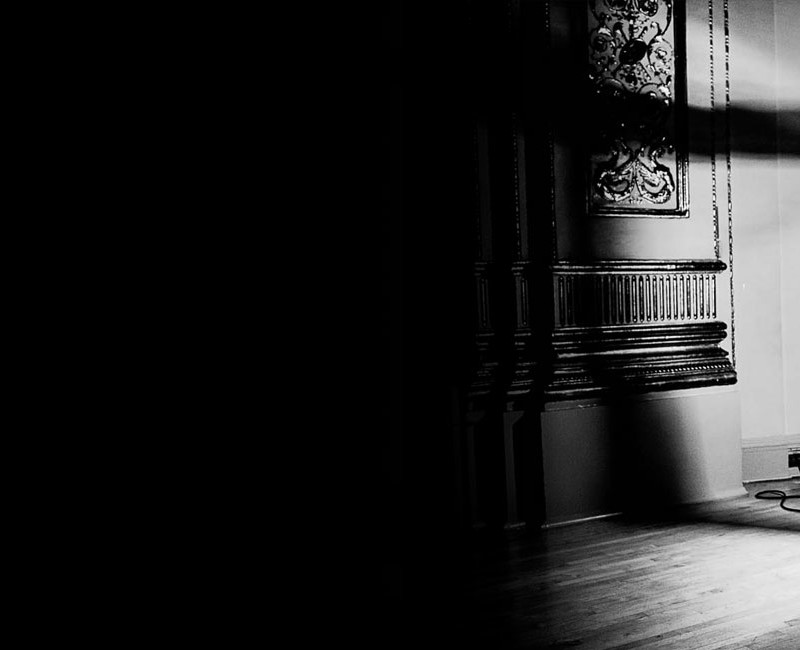No Fear of Heights: A Portrait of the Spanish Conductor Pablo Heras-Casado
30 Sep 2011
Spain, the land of great individualists? There, in sport as in art (though less so in politics and business), numerous indications to support this thesis. For example Spain had the great golfer Severiano Ballesteros: a true gentleman, even away from the green. Spain had Miguel Indurain, the great racing cyclist, who (presumably) still managed without performance-enhancing drugs when he won the Tour de France no less than five times: a true king of the pedals. And Spain has a Rafael Nadal, whose way of playing tennis, as athletic as it is unconditional, amazes and enchants spectators the world over. A friendly young man, totally without any airs and graces.
In the field of the arts, we can find similar examples. For example Plácido Domingo. A man of honour through and through. Or the legendary Alfredo Kraus. How many singers would have liked to have his noble grandezza on stage and backstage. And finally personalities like José Carreras, Victoria de los Ángeles and Alicia de Larrocha: they were all great soloists in their respective fields, they proclaimed their exquisite talent without vainly parading it.
We could continue the list. But then we would not have enough space to devote to the young man we are supposed to be talking about here. A young man who promises to become a great conductor, if he continues to develop as he has done hitherto. Pablo Heras-Casado is his name, and he is just 33 years old; he has a winsome (one might well say, typically Spanish) charm, he is modest (if the first personal impression is correct), and has that strange talent that can only fall into the cradles of those who one day will stand on the conductor’s rostrum and will be capable of moving 100 or so people, without any compulsion whatever, to undertake great endeavours in the pursuit of art.
Talent alone is not enough. One also needs luck, and/or a mentor. Pablo Heras-Casado found one in no less a person than Pierre Boulez, one of the most influential and precise conductors of the 20th century. As luck would have it (or chance, or fate, you can take your choice) four years ago Boulez, alongside Peter Eötvös, chaired the conducting competition at the Lucerne Festival and chose Heras-Casado for his interpretation of Karlheinz Stockhausen’s highly complex opus, Gruppen. That opened the way, and the young Spaniard has since walked along it with immense confidence and lightness of touch. The most recent climax: the world premiere of Toshio Hosokawa’s mystical music theatre Matsukaze in Brussels, at which the work itself, the production, and likewise the musical direction was praised in the highest tones by all the serious media.
If we look at the CV of the conductor, who was born in Granada, where he still lives, we’re in for an initial surprise. In his leisure time as a teenager, when he was not taking his bicycle over the 2400-metre peaks of the Sierra Nevada, Pablo Heras-Casado sang in a choir that specialized chiefly in the music of the Renaissance. He still loves this music today. And therein, perhaps, lies the nice distinction. For it would be hard to find conductors on the international scene that are just as much at home with Giovanni Pierluigi da Palestrina as with Luciano Berio. And this is precisely what distinguishes Pablo Heras-Casado from many of his (technically equally talented) fellow conductors. He has predilections that range over 500 years of musical history. And he wouldn’t like to miss any of them.
His repertoire is correspondingly broad, and correspondingly varied, too, are the ensembles he conducts. It may happen that in the space of a week he descends into the pit in an opera house in order to guide the domestic orchestra through a Puccini drama, and then to conduct the Klangforum Wien in a performance of contemporary music, only to finish the week at the controls of a major symphony orchestra for performances of the works of Mendelssohn, Tchaikovsky and Sibelius. Others might well feel their heads reeling after such a forced march. Not so Pablo Heras-Casado.
“If I play a piece from the 21st century, I do have to know the history that led up to its composition.” Pablo Heras-Casado
“Why should this happen to me? After all, I love this music, one kind just as much as another. In addition, I think it’s an advantage to know your way around every period. Because each relates to the one before. And if I play a piece from the 21st century, I do have to know the history that led up to its composition, after all.” Wise words, wisely and self-confidently spoken. But without any airs and graces. It is simply that the aesthetic and musical appetite of this artist reaches far and wide, that he ignores and transgresses the boundaries of genres and periods (and thus of styles) alike, because these boundaries do not exist for him.
As all this is coupled with a profound conducting technique and a communicating energy that comes across as liberating, it is not much of a surprise that enquiries are now piling up, or that recently in particular the major symphony orchestras and operatic temples have begun to notice Pablo Heras-Casado. For example the Berlin Philharmonic, where many a young talented squire has already won his musical spurs.
Pablo Heras-Casado knows the orchestra very well, and regards it (how could it be otherwise) as one of the best in the world. He has heard it often. His first impression of it remains unforgettable. It was several years ago, when Sir Simon Rattle was rehearsing Wagner’s Walküre, with the dream team of Plácido Domingo as Siegmund and Eva-Maria Westbroek as Sieglinde. That morning in the Philharmonie left its mark upon him, as he says, like an inscription in stone, and even today he remembers how shocked he was, how brilliant and sharp and transparent the sound of the Philharmonic, how breathtaking the tension that emanated from the music, and how extraordinary the commitment of the musicians, even though it was ‘only’ a rehearsal.
But is it harder to stand in front of such an orchestra than in front of a merely very good one? Pablo Heras-Casado thinks that for him, the conductor, it makes no difference what ensemble he has in front of him. The only difference, he says, is the ‘level of communication’. And ultimately what’s important is the intensity with which the musical dialogue is conducted. A strictly hierarchical structure such as still existed at the Berlin Philharmonic in the age of Furtwängler and Karajan, he regards as anachronistic in this context. His generation of conductors does not need this position of power any longer. Why not? Quite simply: “The authority lies in the music, that’s like in a modern society, which is increasingly open and highly communicative.” And, he adds, if an orchestra like this, a sworn band, so to speak, pursues a higher goal that consists in understanding the piece in question really profoundly, and then endeavours with the highest possible degree of concentration and freedom to bring these profundities to the surface, to the auditorium, then the bliss would be complete – regardless of whether this happens in Houston, Tokyo or Berlin.
It seems as though Pablo Heras-Casado is well on his way to finding this bliss. As a group champion. And as an individualist.

